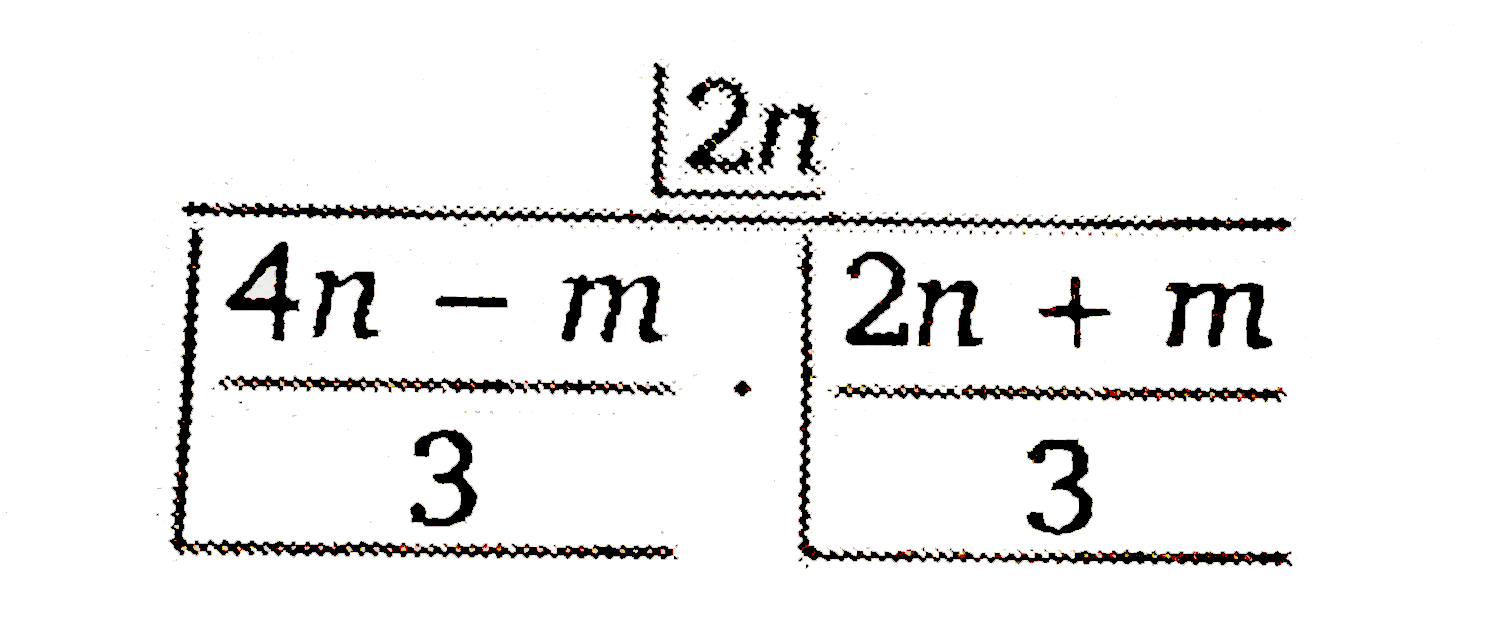Find 1/x+x=2cosθ , then prove that xn+1/xn=2cosnθ.
To solve the equation 1x+x=2cosθ and prove that xn+1xn=2cosnθ, we will follow these steps:
Step 1: Multiply the entire equation by x
Starting from the equation:
1x+x=2cosθ
Multiply both sides by x:
1+x2=2xcosθ
Step 2: Rearrange the equation
Rearranging gives us:
x2−2xcosθ+1=0
Step 3: Use the quadratic formula to find x
This is a standard quadratic equation of the form ax2+bx+c=0, where a=1, b=−2cosθ, and c=1. We can use the quadratic formula:
x=−b±√b2−4ac2a
Substituting the values:
x=2cosθ±√(−2cosθ)2−4⋅1⋅12⋅1
x=2cosθ±√4cos2θ−42
x=2cosθ±2√cos2θ−12
x=cosθ±√cos2θ−1
Step 4: Simplify the square root
Since cos2θ−1=−sin2θ, we can write:
x=cosθ±isinθ
This can be expressed using Euler's formula:
x=eiθorx=e−iθ
Step 5: Raise x to the power of n
Now, we will raise x to the power of n:
xn=(eiθ)n=einθorxn=(e−iθ)n=e−inθ
Step 6: Find xn+1xn
Now we calculate:
xn+1xn=einθ+1einθore−inθ+1e−inθ
This simplifies to:
xn+1xn=1+1xn
Step 7: Use Euler's formula to express cosnθ
Using Euler's formula, we have:
1xn=e−inθ
Thus:
xn+1xn=1+e−inθ=2cosnθ
Conclusion
We have shown that:
xn+1xn=2cosnθ
Starting from the equation:
1x+x=2cosθ
Multiply both sides by x:
1+x2=2xcosθ
Rearranging gives us:
x2−2xcosθ+1=0
This is a standard quadratic equation of the form ax2+bx+c=0, where a=1, b=−2cosθ, and c=1. We can use the quadratic formula:
x=−b±√b2−4ac2a
Substituting the values:
x=2cosθ±√(−2cosθ)2−4⋅1⋅12⋅1
x=2cosθ±√4cos2θ−42
x=2cosθ±2√cos2θ−12
x=cosθ±√cos2θ−1
Since cos2θ−1=−sin2θ, we can write:
x=cosθ±isinθ
This can be expressed using Euler's formula:
x=eiθorx=e−iθ
Now, we will raise x to the power of n:
xn=(eiθ)n=einθorxn=(e−iθ)n=e−inθ
Now we calculate:
xn+1xn=einθ+1einθore−inθ+1e−inθ
This simplifies to:
xn+1xn=1+1xn
Using Euler's formula, we have:
1xn=e−inθ
Thus:
xn+1xn=1+e−inθ=2cosnθ
We have shown that:
xn+1xn=2cosnθ
Similar Questions
Knowledge Check
If x+1x=2cosθ, then xn+1xn is equal to
A2sinnθB2cosnθCsin(2nθ)Dcos(2nθ)
If 'n' is a positive integer then prove that the coefficient foxm in the expansion of (x2+1x)2n is :

View SolutionIf x=2sinθ1+cosθ+sinθ,then1−cosθ+sinθ1+sinθ is equal to 1+x (b) 1−x (c) x (d) 1x
View SolutionIf In=∫xndx√x2+a then prove that In+n−1naln−2=1nxn−1⋅√x2+a
View SolutionUsing mathematical induction prove that x+4x+7x+......+(3n−2)x=12n(3n−1)x
View SolutionFind the sum of the series 1+2x+3x2+(n−1)xn−2 using differentiation.
View SolutionFind the sum of the series 1+2x+3x2+(n−1)xn−2) using differentiation.
View Solutionif n is a positive integer, find the co-efficient of xn in the expansion of (3x−2)n(1−x)2
View Solution
